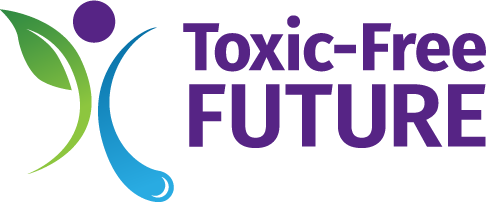I wasn’t expecting to write another post on PFAS (“Forever Chemicals”) until the new EPA limits hatch, probably around mid-April, but a few weeks ago, Laurie Valeriano, Executive Director of Toxic-Free Future, reached out to a number of us for help and a cosignature on a letter to the Washington State Department of Ecology as the agency prepares a multi-year PFAS funding strategy and budget request for 2025 and beyond.
I first met Laurie in 2016 when we were both on the joint Ecology/Health Per- and Polyfluoroalkyl Substances Chemical Action Plan Advisory Team, an effort that resulted in Washington’s State Action Levels for PFAS in drinking water. Under Laurie’s leadership, Toxic-Free future has achieved such high-profile wins as getting REI to ban PFAS in all textiles. Laurie works relationally. She builds, rather than burns, bridges with other non-profits, State Agency staff and lawmakers, and concerned community members, and is well-respected by all.
The previous post described how lack of funding and coordination has hampered Ecology’s efforts to help communities impacted by PFAS in drinking water. The lack of coordination comes about because Ecology is a grouping of programs under one organizational roof, the programs—water rights, toxic cleanup, products, solid waste, and so on—each corresponding to a different state law that Ecology administers, while drinking water is under a different agency altogether. These programs have little contact in their day-to-day work, meaning that a problem like PFAS which touches multiple programs doesn’t get a coordinated response.
The letter addresses those concerns.
In 2023 the legislature required Ecology to develop a multi-year, statewide funding strategy to reduce PFAS in the environment, with a focus on future capital projects in three areas: safe drinking water; managing environmental contamination; and evaluating PFAS waste management options.
This is an important opportunity to obtain capital budget funding in 2025 for projects that will protect Washington residents and ecosystems from these dangerous chemicals.,
It also asks for input in the process from the impacted communities.
It is essential for those who are being highly impacted to be at the table providing input on setting priorities. We request that the agency get public input, particularly from impacted communities and other sensitive populations.
It’s fair to say that drinking water is a hot political issue in the State of Michigan. The history of lead contamination in Flint, and the presence of an industrial PFAS user, Wolverine, have made clean drinking water a sure vote winner there.
In response to PFAS contamination, other states, such as Michigan, have created a transparent process and centralized coordination system for agencies that reports to the governor’s office. The Michigan PFAS Response Team (MPART) is also transparent with its progress and includes public involvement.
Now is a good time to learn from them.
The letter’s requests address many of the specific concerns raised in earlier posts.
1. Pursue a comprehensive testing and source identification effort carried out by Ecology.
2. Create a rapid response fund to mitigate PFAS and ensure people have safe drinking water, prioritizing private wells and Group B water systems.
3. Leverage existing regulatory authority to require polluters to test, prevent and mitigate PFAS contamination.
4. Prevent new PFAS contamination.
5. Invest in innovative solutions to replace, dispose of, or clean up PFAS with safer solutions.
The signatories have also requested a meeting with Ecology. I’ll be back to let you know how that goes.
Here’s a link to the full text of the letter.
Thanks, as always, for reading or listening. For the next few weeks, I’m in a writing workshop. I’ll be devoting my writing energy to workshop assignments, so my posting frequency here will be diminished for the duration. I’m looking forward to sharing the fruits of my labors with you at the end of the workshop.






Most of my family lives in Washington, and I'm so glad to know that competent people are working to address this.
Thank you for doing this important work.